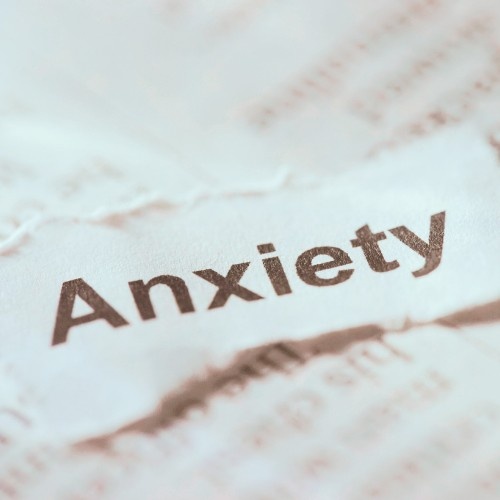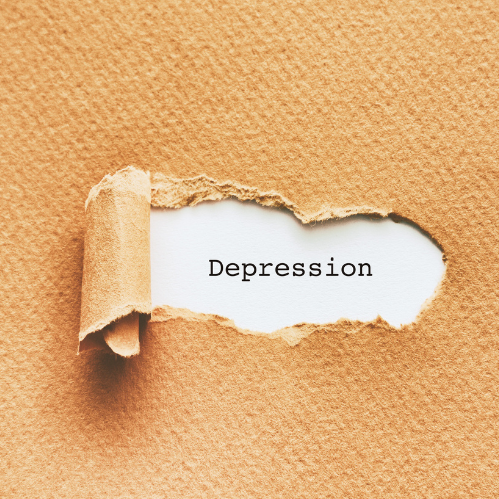Therapy for Humans: Navigating Depression, Anxiety, Trauma, and Life Stressors

Listen, times have been tough!
We’ve all been struggling with the state of the world. We may also have underlying depression, anxiety, childhood trauma, stress from work, relationships, really anything else! We’re here to help.
We want to support you, and help you take a deep breath. A real one, not a half assed breath, ok? (This may or may not be something Becca says to herself/clients/her kids on a regular basis.)
If you’re struggling with anxiety, therapy can help to uncover the underlying causes of your worries and fears, learn how to relax, look at situations in a new, less frightening way, and develop better coping mechanisms and problem-solving skills.
If you’re struggling with trauma, which most people will experience at some point in their life, and we do not get to pick what our brain decides is traumatic, we’re here for you. We are a team of trauma informed therapists ready to listen, and help you feel more comfortable and safer in your skin.
If you’re struggling with depression, you might have trouble sleeping, or be sleeping too much. Maybe your appetite is gone, you’re feeling unmotivated, isolated, and drained. You are not alone! We want to help you find the tools to feel like yourself again.
Our Approach to Therapy for Humans
Remember, we want to support you in taking a real, deep breath. We believe in providing a safe, non-judgmental space where you can explore your feelings, thoughts, and experiences. Our goal is to help you:
-
Uncover the root causes of your struggles
-
Develop effective coping mechanisms
-
Learn to trust yourself and listen to your inner voice
-
Stop abandoning yourself for others
-
Recognize that your feelings and experiences are valid
Being human means feeling it all – the ups, the downs, and everything in between. You're not a robot, but a deeply feeling being. Let us help you embrace your humanity and navigate life's challenges with confidence and resilience. When you're ready to start your journey towards better mental health, we're here to help. Reach out to Being Human Group today and take the first step towards a more fulfilling life.
Start Therapy Today
Click the button below to book a free consultation call with our team.
Book Your Therapist ConsultationManaging Life Stressors and Feeling Overwhelmed
Feeling overwhelmed is a common experience in today's fast-paced world. It can be a symptom of various underlying issues, including anxiety, depression, or simply being in a high-pressure environment.
Strategies to Manage Overwhelm:
-
Prioritize tasks and break them into smaller, manageable steps
-
Practice stress-reduction techniques like deep breathing or mindfulness
-
Set healthy boundaries in your personal and professional life
-
Engage in regular self-care activities
-
Seek support from friends, family, or a therapist
At Being Human Group, we'll work with you to develop personalized strategies to manage stress and prevent burnout.
Stress Reduction Strategies
Reducing stress is crucial for overall mental health. Some effective strategies include:
-
Setting boundaries
-
Practicing time management
-
Engaging in regular physical activity
-
Learning relaxation techniques like deep breathing or progressive muscle relaxation
-
Maintaining a consistent sleep schedule
-
Connecting with supportive people
-
Engaging in hobbies or activities you enjoy
Our Michigan Therapists are here for you, when you are ready to feel more like yourself. Keep reading to learn more about anxiety, depression, and trauma. Then, book your free consultation with our caring team to get started.
Start Therapy in Michigan Today
Understanding Anxiety
Anxiety is more than just worrying. While worry tends to be situational and can prompt problem-solving, anxiety can be all-encompassing and often paralyzing. It's important to recognize that worry can evolve into anxiety if left unresolved or if stressors accumulate.
Top 10 Ways to Cope with Anxiety:
-
Practice mindfulness and meditation
-
Engage in journaling or coloring
-
Talk it out with a trusted friend or anxiety therapist
-
Exercise regularly
-
Listen to calming music
-
Prioritize sleep
-
Spend time with loved ones or pets
-
Maintain a healthy diet and stay hydrated
-
Use positive self-talk
-
Utilize grounding techniques
What is a coping method for anxiety?
One effective coping method for anxiety is the 5-4-3-2-1 grounding technique. This exercise helps bring you back to the present moment:
-
Identify 5 things you can see
-
Acknowledge 4 things you can hear
-
Notice 3 things you can touch
-
Recognize 2 things you can taste
-
Focus on 1 thing you can smell
Is there a difference between worrying and anxiety?
Worry tends to be situational, and while anxiety can be situational as well it also tends to be more encompassing. Worry can prompt us to problem solve, whereas anxiety can stop us in our tracks.
Can worry turn into anxiety?
Worry can turn into anxiety if we’re unable to resolve our worry, or more things pile on and we feel overwhelmed. Remember, it's okay to seek help. Our therapist team is here to guide you through evidence-based strategies to manage your anxiety effectively.
Start Anxiety Therapy
Click the button below to book a free consultation call with an anxiety specialist.
Anxiety Therapy ConsultationUnderstanding and Treating Depression
Depression is more than just feeling sad or going through a rough patch. It's a serious mental health condition that affects millions of people worldwide. At Being Human Group, we understand the complexities of depression and are here to support you.
Depression can manifest in different ways for different people, but you're not alone in this struggle. Our therapist team is committed to helping you rediscover yourself and find the tools to manage your symptoms effectively.
Can you lead a normal life with depression?
It's important to know that with appropriate treatment and support, it is possible to lead a fulfilling life while managing depression. The journey may not always be easy, but recovery and improved quality of life are achievable goals.
Depression Symptoms and Impact:
Depression can manifest in various ways, including:
-
Changes in sleep patterns (insomnia or oversleeping)
-
Loss of appetite or overeating
-
Lack of motivation and energy
-
Feelings of hopelessness or worthlessness
-
Difficulty concentrating
-
Social isolation
-
Physical aches and pains
Untreated depression can worsen over time, potentially leading to more severe symptoms, increased risk of suicide, and negative impacts on physical health, relationships, and overall well-being. That's why seeking help is crucial.
What is the best form of treatment for depression?
The most effective treatment for depression often involves a combination of approaches:
- Psychotherapy: Cognitive-Behavioral Therapy (CBT) and Interpersonal Therapy (IPT) are particularly effective.
- Medication: Antidepressants can help balance brain chemistry.
- Lifestyle changes: Regular exercise, improved sleep hygiene, and a balanced diet can significantly impact mood.
- Mindfulness and relaxation techniques: These can help manage stress and improve overall well-being.
- Social support: Connecting with others and building a strong support network is crucial.
- Light therapy: For those affected by seasonal patterns, sun lamps and vitamin D supplements can be beneficial.
At Being Human Group, we'll work with you to create a personalized treatment plan that addresses your unique needs and circumstances.
Begin Therapy for Depression
Click the button below to book a free consultation call with a depression therapist.
Depression Treatment ConsultationHealing from Childhood Trauma with Therapy and PTSD Treatment
Trauma is a deeply personal experience, and we don't get to choose what our brain perceives as traumatic. Our trauma-informed therapists are here to listen without judgment and help you feel more comfortable and safe in your own skin. We understand that healing from trauma is a journey, and we're here to support you every step of the way.
Understanding Trauma
Trauma can result from a wide range of experiences, and it's important to remember that we don't get to choose what our brain perceives as traumatic.
Common symptoms of trauma include:
- Intrusive thoughts or memories
- Avoidance of trauma reminders
- Negative changes in mood and thinking
- Changes in physical and emotional reactions
- Difficulty in relationships
- Sleep disturbances
What therapy do you need for trauma?
There are several modalities that can be helpful for processing trauma. EMDR, Safe and Sound Protocol, psychedelic integration, movement therapy, talk therapy and art or journaling can all be helpful. It depends upon the person and what works best for them. Often people start with talk therapy since it is most accessible and then add or switch to EMDR or another modality to make more progress.
What does trauma therapy involve?
Trauma therapy often moves at a slower pace than one might hope. The reason for this is we do not want to flood the individual with emotions or memories-this is not helpful. We want to develop a practice of titrating and pendulating the emotions that come with intense memories. EMDR, Safe and Sound Protocol, somatic practices and talk therapy can all help. Each person is treated as an individual, and a plan is developed with the individual that works for them. There is no one size fits all approach.
Trauma treatment is often most effective when we take a bottom-up approach, meaning dealing with the body and physical symptoms and emotions first before the narrative. We can’t think our way out of trauma, and often when there has been significant trauma our thinking brain isn’t as engaged as it might be otherwise. We want to work on nervous system regulation first and then begin either talk therapy or EMDR therapy.
Releasing Trauma from the Body
Trauma isn't just stored in our minds; it's also held in our bodies. Some ways to release trauma include:
- Gentle movement practices
- Body work (massage, acupressure, acupuncture)
- Yoga and dance
- Somatic practices (noticing where emotions reside in your body)
Living with PTSD
For those diagnosed with PTSD, everyday life can present unique challenges. Common struggles include:
-
Mood fluctuations
-
Sleep disturbances
-
Difficulty with emotional regulation
-
Hypervigilance or feeling shut down
-
Challenges in relationships
-
Difficulty trusting oneself and others
Can people with PTSD live normally?
Yes! People with PTSD can lead fulfilling lives with appropriate treatment and support. Many individuals with PTSD are able to effectively manage their symptoms through various therapies, sometimes medication, and support networks. It's important for those with PTSD to work with mental health professionals to develop coping strategies and treatment plans that best suit their needs. With proper care and support, individuals with PTSD can lead normal lives and thrive in various aspects of their daily activities. Strategies for managing PTSD symptoms include:
- Engaging in gentle movement
- Participating in therapy
- Cultivating safe relationships
- Creating practices to calm the nervous system
- Developing awareness of symptoms and their temporary nature
At Being Human Group, we're committed to helping you navigate your trauma healing journey with compassion and expertise.
Start Trauma Therapy
Click the button below to book a free consultation call with a trauma-informed therapist.
PTSD & Trauma Therapy ConsultationEmbracing Your Humanity
Whether you're dealing with anxiety, depression, trauma, or the everyday stressors of life, remember that these experiences are part of being human. At Being Human Group, we believe in treating the whole person, not just a set of symptoms.
How Can Therapy Make You Feel?
Imagine waking up feeling more at peace with yourself and the world around you. Picture being able to navigate life's ups and downs with greater resilience and self-assurance. Envision having the tools to manage your mental health effectively, allowing you to pursue your goals and nurture meaningful relationships.
This is the journey we want to embark on with you at Being Human Group. We're here to support you in embracing your full humanity – with all its complexities and beauty. When you're ready to start your path towards healing and growth, reach out to us. Together, we'll work towards a future where you feel empowered, understood, and truly alive.
Seeking help is a sign of strength, not weakness. You don't have to face these challenges alone. Let's take this journey together, one step at a time, toward a more fulfilling and authentic life.
Start Therapy in Michigan Today



